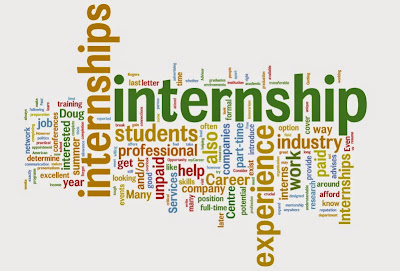Congratulations, you were offered an internship for a
company, organization or non-profit. Whether it is paid or not, it is a new and
exciting opportunity to grow and learn in the communications, marketing or advertising field. So you spent the semester interning
doing a variety of tasks and projects. Now it’s the end of the semester and you have the choice to find another
internship or extend and stay at the same place for another semester. Of my past three internships, I extended two for a second
semester and enjoyed every second of it. Keep in mind, there are pros and cons of
extending your internship.
Pros
-Continuing to Grow and Learn
By continuing your internship, you can grow more in the same
company. You have already spent a full semester proving yourself, and staying
longer can help you gain more responsibility and duties. It also allows you to
get to know the company better and lets you explore different departments.
-Strengthening Relationships
Staying at the same place for an additional semester will
help you strengthen relationships. You will continue to get to know you
supervisors and co-workers and vice versa. Being there another semester will
allow you to really get comfortable and fully trust each other. It also gives
you more time to network and get their advice to help you advance in your
career.
- Job Opportunities
Professionals are always on the prowl for new opportunities.
You never know when someone at the company you are interning at is going to
leave for another opportunity. By extending your internship, you supervisor already
knows how you work, so you could be a top contender for the job.
Cons
-Less Internship Diversity
Being at the same place will lead to a smaller number of
total employers and less diversity in your work experience. Exploring a variety
of internships can help you figure out what fields you enjoy and don’t enjoy so
much.
-Stunting Growth
At some internships, you can only grow and learn so much. Thise
internship may have been great for one semester but you might have learned and
done all you can do there. Staying an additional semester may not help you grow
more because you will just repeat the same jobs and tasks. Moving on may be the
best to learn new skills.
Whether you stay or search for a new internship opportunity,
good luck in you internships and always remember to work hard and never be
afraid to ask for help!
This blog post was written by PRowl Secretary Shaun Luberski.
This blog post was written by PRowl Secretary Shaun Luberski.







